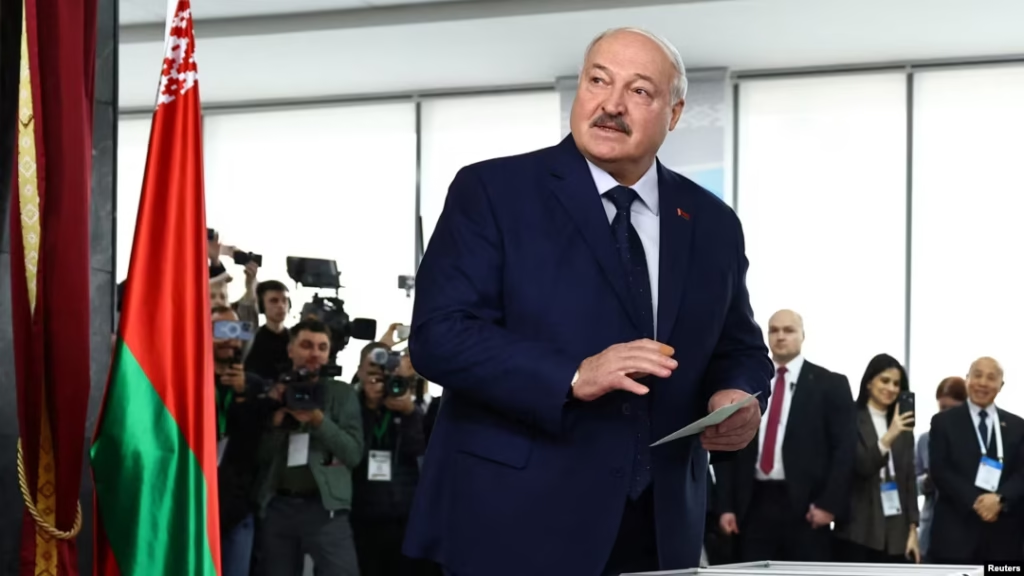Belarusian President Alexander Lukashenko claimed victory in Sunday’s presidential election, securing 87.6% of the vote according to official exit polls. The election, widely denounced as a sham by Western governments and opposition leaders, grants Lukashenko a seventh term in power after more than 30 years as the leader of the Eastern European nation.

The ballot included four opposition candidates, all of whom were closely aligned with Lukashenko. Communist Party leader Sergei Syrankov, one of the candidates, openly expressed support for Lukashenko ahead of the vote, stating, “There is no alternative to Alexander Lukashenko as the leader of our country.”
The election results drew swift condemnation. EU foreign policy chief Kaja Kallas declared the vote a “blatant affront to democracy,” adding that Lukashenko “doesn’t have any legitimacy.” Neither the EU, the U.S., nor the U.K. recognize his government as legitimate, citing fraudulent elections in 2020 that sparked mass protests, followed by a brutal crackdown supported by Russian President Vladimir Putin.
Inside Belarus, public reaction was subdued compared to the widespread protests in 2020. Activist Art Balenok, now living in Austria, attributed the lack of demonstrations to severe repression. “Protests have been so brutally suppressed that doing something from within the country at the moment is not possible,” Balenok told POLITICO.
More than half a million people have fled Belarus since the 2020 unrest, fearing imprisonment or worse. “If you go out and start protesting, you’ll be thrown in jail,” Balenok said. “Maybe you’ll come out one day. Maybe not.”
Exiled opposition leader Sviatlana Tsikhanouskaya, speaking from Warsaw, Poland, led a march for freedom in protest of the election. “As Belarusians, we will never lose hope,” she said in a post on X. “We will reclaim our country and return home stronger than ever.”
Despite the election results, Tsikhanouskaya’s adviser Aleś Alachnovič noted widespread resignation among Belarusians. “People feel the costs of protest are too high, and they don’t see any immediate benefits. Lukashenko’s regime has shown it will stop at nothing to maintain power.”
When casting his vote, Lukashenko dismissed international criticism and defended his government’s actions. He claimed political opponents who were jailed or exiled had “chosen” their fate. “Prison is for those who opened their mouths too wide, those who broke the law,” he told reporters.
Lukashenko also denied releasing prisoners, including an American detainee, was an attempt to mend ties with the West. “I don’t give a damn about the West,” he said, asserting that Belarus was open to dialogue with the EU but would not “bow or crawl on our knees.”
The European Parliament echoed widespread condemnation, passing a resolution last week rejecting the legitimacy of the election and calling Lukashenko’s anticipated victory a “sham.”



